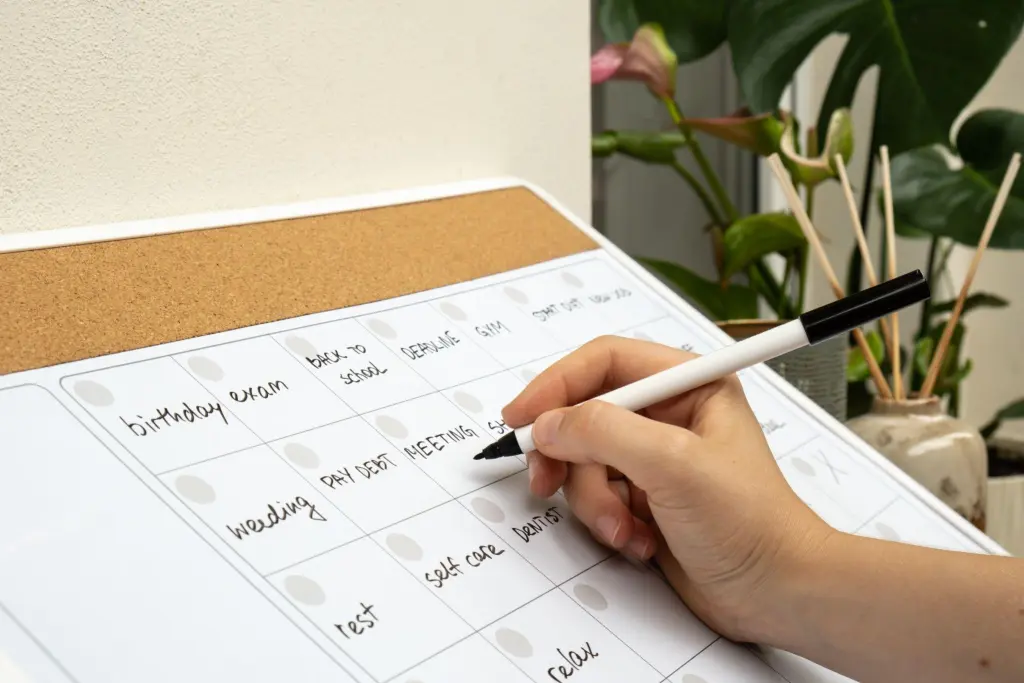We all sometimes need help to build healthy habits, and with so many obligations and distractions, that’s sometimes easier said than done. Our mental, emotional, and physical wellness depends on our discipline and willingness to understand and prioritize our needs, but we’re rarely taught how to do it.
If you’re looking for ways to boost your mental health and maintain the balance between the stressful everyday life and the need to work on yourself, habit tracking can help. The power of this method lies in your ability to identify patterns in your behavior and set goals that will allow you to create a positive change in your life. Here’s everything you need to know!
What is habit tracking and how can it help you?
The idea behind habit tracking is simple, yet powerful. Whether you’re looking to develop a new habit or keep track of the things you already do regularly, the idea is to keep tabs on the desired behaviors and monitor your progress over time.
This system can be as simple or elaborate as you’d like. If you’re trying to adopt a new habit, like regularly going on a 30-minute walk, you can use your physical or digital calendar to mark every day you actually went for a walk. In time, you can make your tracking more detailed, like recording how you feel after, how many steps you walked, etc.
The main advantage of habit tracking is having more accountability for your own life and being aware of how small changes can impact the quality of your routine. Taking responsibility for your time, your well-being, and your personal development will push you to keep the habits that make you feel and look good.
How to do habit tracking?
So, how do you implement habit tracking and make it a part of your routine? Here are a few simple steps you can take:
- Choose the habits you want to track. Instead of wanting to change all your habits at the same time, it’s better to choose a few that you want to develop or improve. Set yourself up for success by making small gradual improvements over time so that it gets easier to make them “stick.”
- Decide on how you’re going to track your habits. Do you prefer to have a physical habit journal or would you rather have everything on an app? If you like to write everything down, there are some amazing journal formats like Erin Condren habit tracker notepads that can make it easier for you to jot down your habits, successes, and challenges.
- Remember to set clear goals. Know how to set attainable goals that will be measurable and feel like a win. It may be tempting to set lofty, highly inspirational goals, but that could easily lead to feeling demotivated and giving up, so start small. Your goals can be as simple as “Stretch for 10 minutes after you wake up.” The sky is the limit!
- Monitor your progress and adjust as necessary. To make your habit tracking work, consistently monitor your progress to see where there’s room for improvement. When you see the need for adjustment of your goals and habits, feel free to do so. Your goals should be your tools for success, not rigid unattainable towers in the sky.
How do great habits affect your mental health?
Your daily routines and habits, or lack thereof, shape your life and dictate how you feel day in and day out. Having a healthy diet, regular exercise, and plenty of sleep are the basis of your wellness, and they will always pay off in the long term. Add to that a mindfulness practice that suits your sensibility, and you’ve got a recipe for a good mood and less stress.
While we know this well, we’re also surrounded by distractions and responsibilities that make it difficult to keep up with our empowering daily habits. This is where habit tracking becomes a powerhouse – by dedicating some time to keeping track of all your habits and how they make you feel, you’ll get a clear picture of what works for you. Other benefits that come with this approach are:
- Better motivation and accountability. Writing down your habits so that you can see what you prioritize in life can be a wake-up call. Not only does habit tracking invite you to have more accountability, but it can also motivate you to show up for yourself more.
- More self-awareness in everything you do. Having and tracking healthy habits that serve you is more than just a series of steps – it lets you spot patterns in your behaviors, excuses you give yourself, and how they affect your mental health. There’s usually a discrepancy between what we think we do and what we actually do, and having strong self-awareness can help you identify challenges and find effective ways to overcome them.
- Staying on top of your goals. Everybody has their approach to goal setting, so try to find the one that works for you. Habit tracking allows you to set realistic goals and find the best framework to achieve them. These goals can be small daily or weekly victories that will make you feel good and encourage you to stay on your path of meaningful personal change.
- Less stress in your everyday life. When unchecked, high stress levels can wreak havoc on our health. Tracking your habits can help you reduce mental clutter because your daily plans are mapped out in your habit tracker.
Conclusion
The power of habit tracking can’t be overstated when it comes to unlocking your mental wellness. Doing it will inspire you to have more accountability and keep moving forward on your road of personal development and self-discovery even during challenging periods. This tool, which is also a habit in itself, could show you the path to your best self, one good habit at a time.
